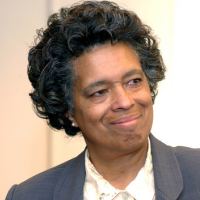U.S. Court Shields Chevron from Paying $9 Billion Judgment for Ecuador Rain Forest Destruction
 Judge Amalya Kearse (photo: Rick Kopstein, ALM)
Judge Amalya Kearse (photo: Rick Kopstein, ALM)
By Kevin Lessmiller and Adam Klasfeld, Courthouse News Service
(CN) — The Second Circuit ruled Monday that Ecuadoreans cannot collect a $9.5 billion judgment against Chevron for rainforest damage, finding that the judgment was the result of bribery and fraud.
The ruling is another setback for rainforest residents who have struggled for 23 years for compensation for what they called an "Amazon Chernobyl."
In 1993, indigenous and farmer residents of the Ecuadorean rainforest sued Chevron's predecessor Texaco in New York, alleging that the company left behind an environmental and public health disaster for the 30,000 residents of Amazon. Chevron's first step after acquiring Texaco was convincing the New York courts to relocate the lawsuit to the Ecuadorean city of Lago Agrio, where the drilling occurred.
An Ecuadorian judge awarded the plaintiffs $18 billion in February 2011 for environmental damage caused by Texaco during its operation of an oil consortium in the rainforest from 1972 to 1990.
Ecuador's highest court upheld the verdict three years later, but reduced the judgment to about $9.5 billion.
Chevron promised to abide by the Ecuadorean judgment to win the transfer of the case, but it later insisted that this obligation was void because of fraud.
Returning to New York, Chevron accused lawyers for the Ecuadoreans — particularly, a human-rights lawyer named Steven Donziger — of attempting to "shake-down" the company for billions by pressuring them to pay an illegitimate judgment.
U.S. District Judge Lewis Kaplan agreed and ruled in March 2014 that Ecuador's judgment had been "procured by corrupt means," such as bribery.
Kaplan devoted two separate subsections of a 500-page decision to Ecuadorean President Rafael Correa's election and "influence" on the Lago Agrio litigation. Those sections described how Correa pushed for the prosecution of Chevron lawyers, offered to call a judge, and launched a public relations campaign attacking Chevron and its allies to help the country's citizens win in court.
The Second Circuit heard arguments in the case last year. On Monday, the New York City-based appeals court unanimously upheld Kaplan's ruling.
"There is no authority suggesting that a party ignorant of its attorney's fraudulent actions may enforce a fraudulently procured judgment," Judge Amalya Kearse wrote for a three-judge panel. "Even innocent clients may not benefit from the fraud of their attorney."
Kearse said the case record "reveals a parade of corrupt actions" by the Amazon residents' attorneys, including coercion, fraud, and bribery, culminating in the promise to [the Ecuadorian judge] of $500,000 from a judgment in favor" of the residents.
The Second Circuit said in its 127-page ruling that the massive judgment against Chevron "is clearly traceable to the [residents'] legal team's corrupt conduct."
Karen Hinton, U.S. spokesperson for the Ecuadorian plaintiffs, said they are "are shocked by this decision."
"The Ecuadorians' attorneys are reviewing it carefully and will be exploring all options for further appeal. As disappointed as we are, this ruling will not deter the Ecuadorians, their lawyers and their supporters from aggressively seeking justice in Canada and in other countries where litigation is underway to seize Chevron assets," Hinton said. "With those assets, the Ecuadorians will be able to undo some of the damages Chevron left behind -- damage that has ruined the pristine rainforest and taken the lives of men, women and children who depend on the rainforest for the basic necessities of life. It is a sad day for the U.S. justice system."
Donziger's attorney Deepak Gupta called the Second Circuit ruling "unprecedented in American law."
"Never before has a U.S. court allowed someone who lost a case in another country to come to the U.S. to attack a foreign court's damages award," Gupta said. "The decision hands well-heeled corporations a template for avoiding legal accountability anywhere in the world. And it throws the entire international judgment-enforcement framework out the window. We will be exploring all available options for further review."
To Learn More:
Ecuador Court Fines Chevron $9 Billion in Rain Forest Pollution Case (by Noel Brinkerhoff and David Wallechinsky, AllGov)
Chevron May Face Biggest Fine Ever as 16-Year-Old Case Nears Judgment (by Noel Brinkerhoff, AllGov)
- Top Stories
- Unusual News
- Where is the Money Going?
- Controversies
- U.S. and the World
- Appointments and Resignations
- Latest News
- Musk and Trump Fire Members of Congress
- Trump Calls for Violent Street Demonstrations Against Himself
- Trump Changes Name of Republican Party
- The 2024 Election By the Numbers
- Bashar al-Assad—The Fall of a Rabid AntiSemite






Comments